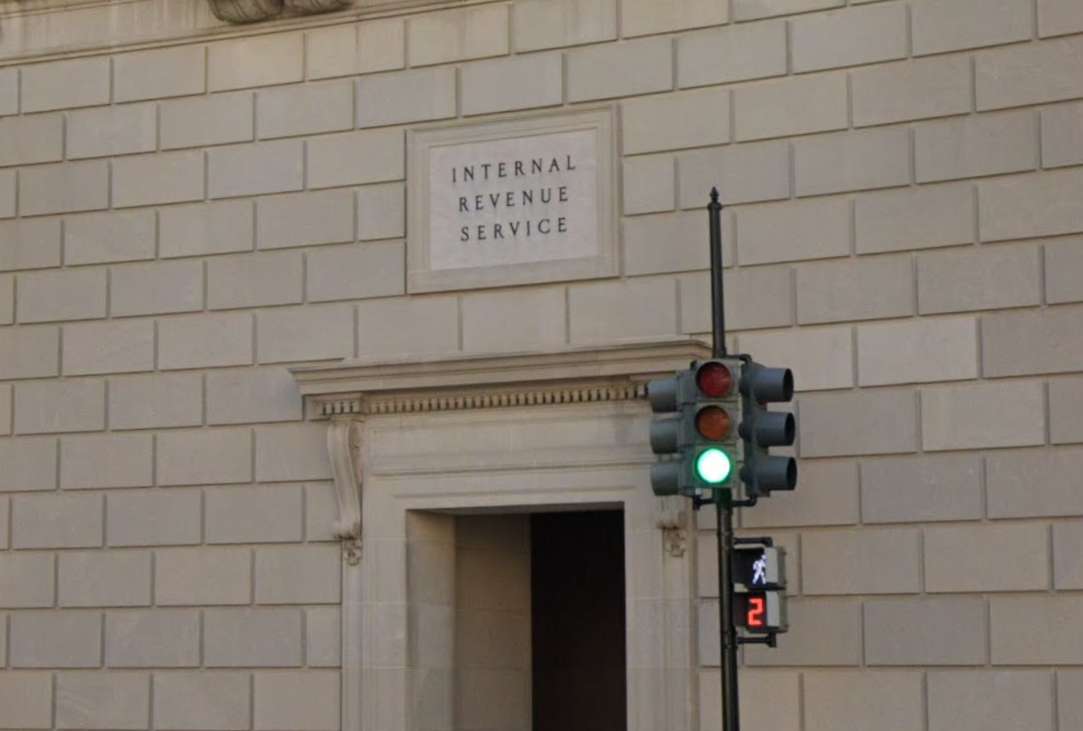
A Great Falls man pleaded guilty on Friday (March 15) to failing to pay $1.8 million to the Internal Revenue Service.
Rick Tariq Rahim, 55, owned and operated several businesses, including laser tag facilities, and he worked as an Amazon reseller, according to the U.S. Attorney’s Office of the Eastern District of Virginia.
“From 2015 to 2021, Rahim did not pay to the IRS the taxes withheld from his employees’ paychecks or file the required quarterly employment tax returns reporting those withholdings,” the office said in a press release.
Authorities say Rahim hasn’t filed a personal income tax return since 2012 despite earning more than $34 million in gross income.
In addition, Rahim filed two personal income tax returns where reported owing “substantial” taxes but did not pay them when they were due. When the IRS attempted to contact him, he submitted a false form that omitted assets he owned, including a helicopter, property in Great Falls and a Lamborghini, according to the U.S. Attorney’s Office.
From the press release:
Approximately two weeks later, Rahim transferred ownership of that Great Falls property to his wife. He also paid personal expenses from his business bank accounts, including more than $889,000 toward his mortgages and more than $669,000 to purchase or lease cars, including three different Lamborghinis. In addition, Rahim withdrew more than $1.1 million in cash in amounts less than $10,000 to avoid triggering currency transaction reports from the bank.
His sentencing is scheduled for June 21.
Photo via Google Maps

(Updated at 2:40 p.m.) Vienna officials have released a proposed budget that maintains the town’s current real estate tax rate, despite continued economic challenges from inflation and supply chain issues.
The $53.8 million budget for fiscal year 2025, which starts July 1, holds the tax rate at $0.1950 per $100 of assessed value. Combined with a cumulative 3-cent reduction over the previous three years, the town will have cut its tax rate by 14% since 2021, Town Manager Mercury Payton said in a message to Mayor Linda Colbert and the town council.
However, residential property owners can still expect higher bills, thanks to rising home values. Residential properties assessed at over $1 million — the average for a second year — now make up 36.4% of all homes, exceeding their 29.9% share last year and the 26.7% of homes valued at $500,000 to $800,000 this year.
“Real estate taxes have increased due to increasing assessments, as Vienna is a very desirable place to live,” Payton said in the budget proposal. “The average residential tax bill is estimated at $2,204, a 6.5 percent increase over last year, due to a 7.0 percent increase in assessed value of existing (no growth) properties.”
Strong returns on cash deposits, sales taxes and business license fees will help fund a $3.7 million, or 7.5%, increase in the budget compared to fiscal year 2024. Most of that will cover increased costs related to water and sewer needs and borrowing.
The town anticipates borrowing $1.55 million for 22 new vehicles, including four police cars, three police motorcycles, one dump truck, pickup trucks, a tractor, a mower and two trailers.
“Economic trends in inflation and supply chain difficulties continue and are leading to pressure on expenditures without a commensurate increase in revenue,” Payton wrote, noting that meals tax collections have been flat through the middle of FY 2024.
Still, Vienna is projecting a $554,000, or 7.6%, increase overall in local tax revenue — fueled by business
licenses and sales taxes — and parks and recreation fees are expected to go up by $259,000 or 19.7%.
Priorities addressed by the proposed budget include compensation increases totaling 4% for general employees and 5.5% for sworn police officers, which “will assist with…recruitment and retention pressures.”
Starting on July 1, the town will implement new child and family care leave policies for employees who have become new parents or need to care for an immediate family member.
Employees who’ve worked for Vienna for at least 12 months will get six weeks of paid leave to care for a newborn or newly adopted or fostered child, or to get pregnancy-related medical care. The family care leave policy offers up to two weeks or 80 hours of paid time off so employees can care for a sick or injured family member.
Identified as a top priorty of the town council in a Jan. 22 work session, the new leave policies don’t have a direct cost, but they “may result in slight increases in overtime to cover positions utilizing the leave,” according to the proposed budget. Read More
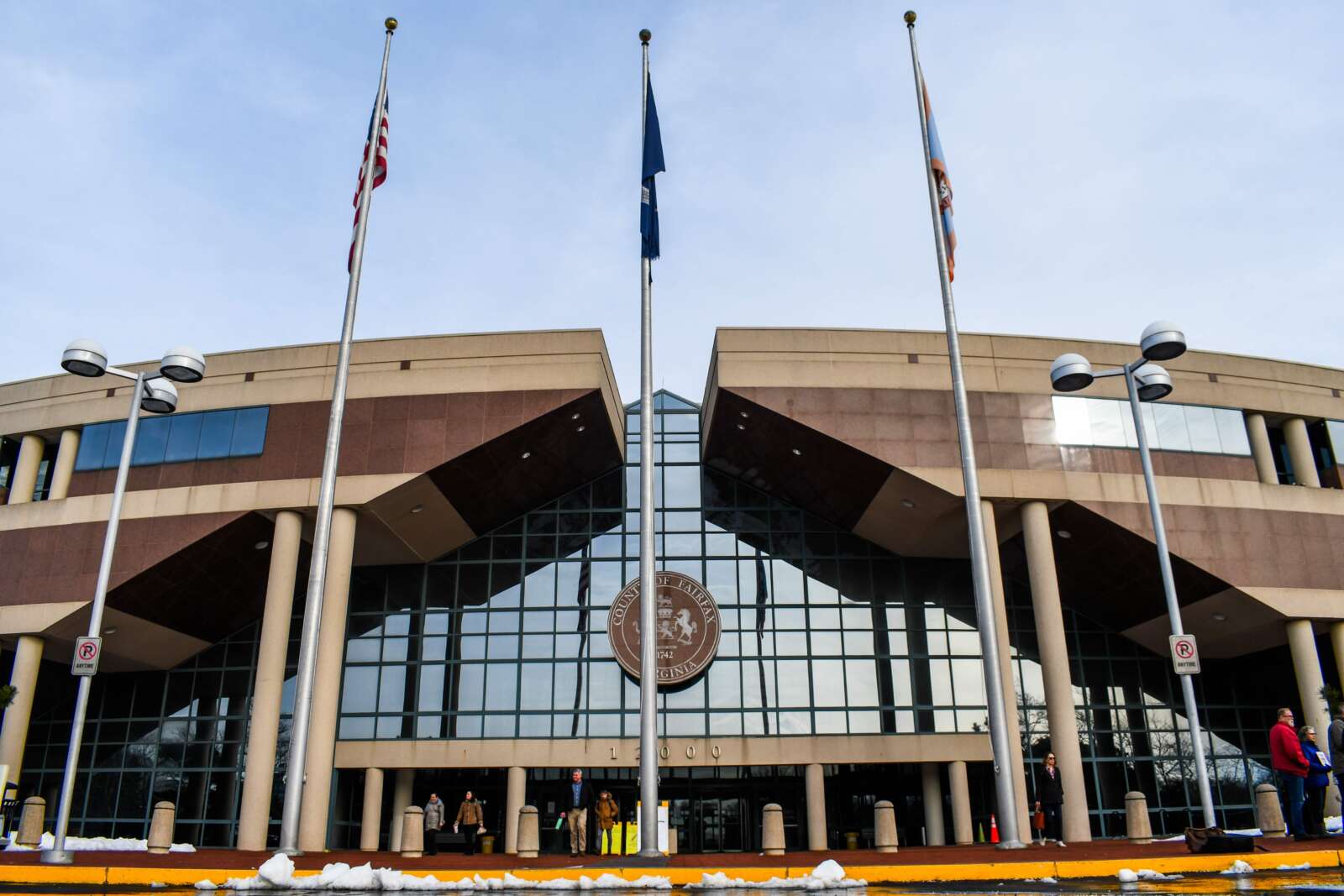
The Fairfax County Board of Supervisors has advanced a proposal for a 4-cent real estate tax increase, which would mark the first hike in six years, if approved.
Yesterday (Tuesday), the board gave County Executive Bryan Hill the green light to advertise the fiscal year 2025 proposed budget and schedule a public hearing starting Tuesday, April 16, at 3 p.m.
The public hearing will be held in the board auditorium at the Fairfax County Government Center (12000 Government Center Parkway) over three days, ending on April 18.
Several board members, including Chairman Jeff McKay, acknowledged the necessity of raising tax revenue to pay for employee raises, schools and Metro, among other priorities. However, they noted that the tax rate adopted in the final budget draft may be lower than the advertised rate, which sets a ceiling on what the board can approve.
“It is the prudent thing to do,” McKay said, adding that the board needs flexibility to increase the tax rate if the state does not provide enough funding for specific items, such as schools.
Under the proposed plan, the real estate tax rate would increase from $1.095 per $100 to $1.135, boosting the average tax bill by more than $524. Initially, Hill had recommended a 6 to 8-cent hike, but the board rejected the proposal.
If adopted, the new tax rate would generate an additional $129.28 million in revenue, which would help offset the revenue loss caused by a decline in commercial property values, particularly office space.
About 73% of taxable residential properties in the county saw their value rise this year, compared to just 36% of non-residential parcels, according to the county’s Department of Tax Administration. The average residential property assessment increased by 2.86% to $744,526 from 2023.
Also included in the proposed budget is an 8.8% increase in personal property taxes and a proposed 10-cent-per-pack increase in cigarette taxes, raising the total projected revenue to $363.22 million more than last fiscal year.
The advertised budget largely focuses spending to essential areas like public schools and employee compensation, with nearly half of the funding ($165 million) allocated to Fairfax County Public Schools — falling short of Superintendent Michelle Reid’s request for an additional $254 million.
While board members acknowledged the significance of Reid’s request, several noted during yesterday’s meeting too much of the burden would fall on property owners.
Instead, supervisors blamed the state for failing to adequately fund the school system, pointing out that Virginia’s funding for public education falls well below the national average. They also highlighted Gov. Glenn Youngkin’s proposed state budget, which would reduce funding for K-12 schools.
Springfield District Supervisor Pat Herrity, the lone Republican on the board, said that while he supports the advertised rate, he wants to see the board try to whittle the number down.
“I hope we can start looking at a deep dive on the budget and see what we can do for our taxpayers,” he said.
In addition to testifying at next month’s public hearings, community members can provide feedback to the county on the proposed budget and tax rate online, by text, phone and email.
A final budget and tax rate will be adopted by the board on May 7.
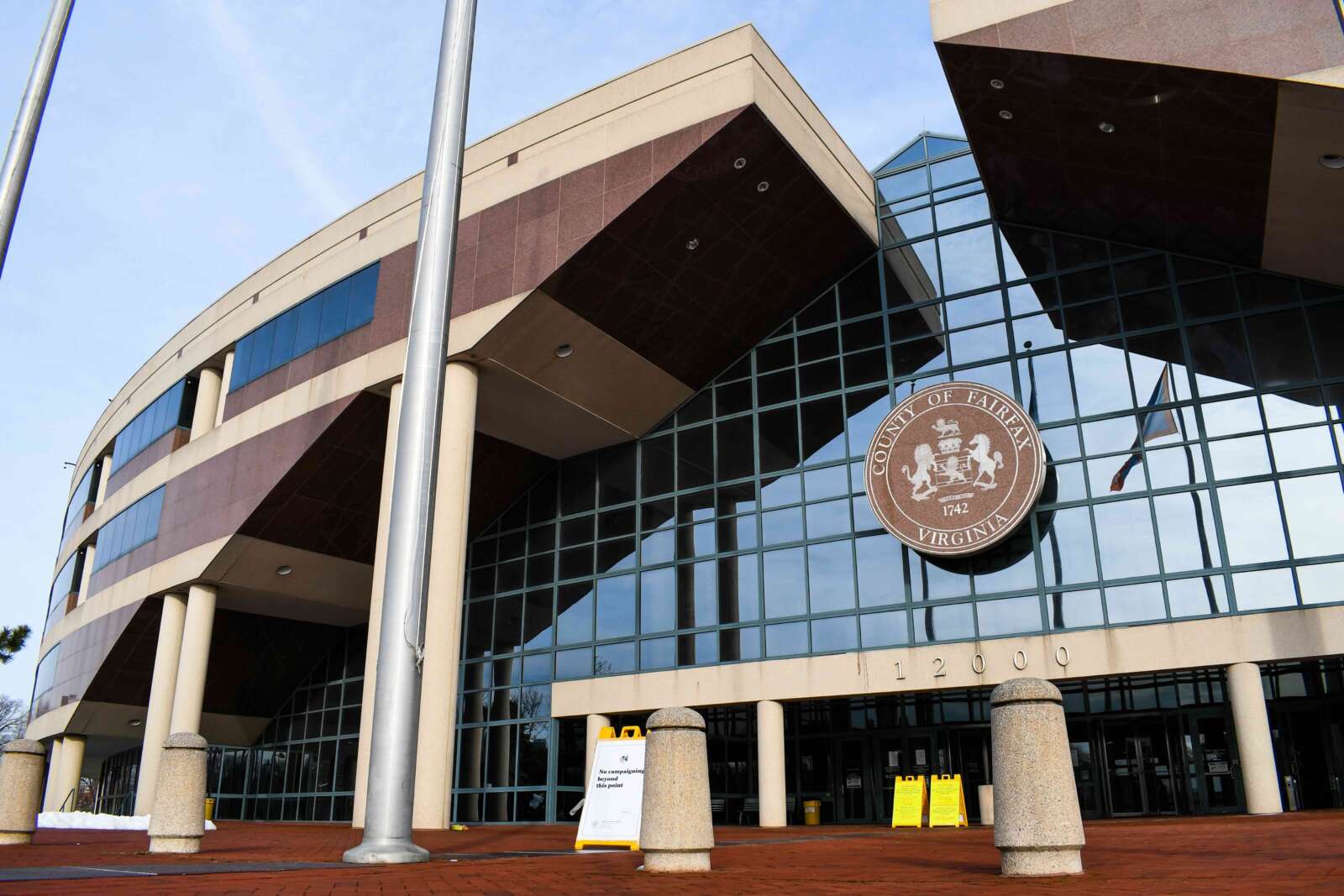
As anticipated, Fairfax County is looking at a tight budget for the coming year that will once again lean primarily on residential property owners to offset a declining commercial tax base.
County Executive Bryan Hill has proposed a 4-cent increase in the real estate tax rate, even as he presented an advertised fiscal year 2025 budget to the Fairfax County Board of Supervisors yesterday (Tuesday) that largely limits spending to obligations like public schools and employee compensation.
If adopted, this would be the county’s first real estate tax rate increase in six years, Hill said in a message to the board. Last year, Hill proposed a flat tax rate that the board ultimately reduced by 1.5 cents to $1.095 per $100 of assessed value, though property owners still saw their bills go up by $412, on average, due to rising home values.
The proposed tax rate of $1.135 per $100 for FY 2025, which starts on July 1, would raise the average tax bill by just over $524 and generate $129.28 million in revenue, according to the county.
“We are seeing some residential growth, but our commercial values have declined, resulting in an overall real estate growth of just over 2.7%,” Hill said. “Paired with significant expenditure pressures — particularly for employee pay and benefits, transportation requirements, and continued inflationary impacts — balancing this proposed budget has required difficult decisions.”
Home values up, commercial values down
Real estate tax revenue provides about 66% of the county’s general funds, which supports most county operations, from public safety agencies to libraries and parks. For FY 2025, more than three-quarters of that revenue (76.7%) will come from residential owners, who are facing an average assessment increase of 2.86% for 2024.
Though the number of home sales in the county last year declined, prices have continued to climb “due to low inventory,” Hill said. The average value of the county’s over 357,000 taxable residential properties for 2024 is $744,526, up from $723,825 in 2023.
By contrast, non-residential property values have dropped for the first time in three years by 1.24%, a dip mostly driven by a struggling office market. About 21.6 million square feet, or 17.2%, of the county’s 119.5 million square feet of office space is vacant — an uptick from last year’s rate of 16.7%, which was already a 10-year high.
With another 1 million square feet of office space under construction, mostly in Metro’s Silver Line corridor, the pressure to revitalize or replace under-utilized office buildings will likely only intensify going forward.
“That space is going to be snapped up quickly, which is going to create situations around our county that will be then vacant,” Hill said when asked by Franconia District Supervisor Rodney Lusk about possible remedies. “We have to figure out ways to fill those spaces, whether it is converting or doing something different on that plot of land. We have done a pretty good job in certain areas of revitalizing…but we need to do more.”
Schools and compensation dominate spending
With some growth projected from other sources, including an 8.8% increase in personal property taxes and a proposed 10-cent-per-pack increase in taxes on cigarettes, the county anticipates getting $363.22 million more in revenue than it did this budget year.
However, Hill says he proposed spending only on “adjustments which I feel are essential to maintain the quality workforce and dependable services upon which our residents rely.” Read More
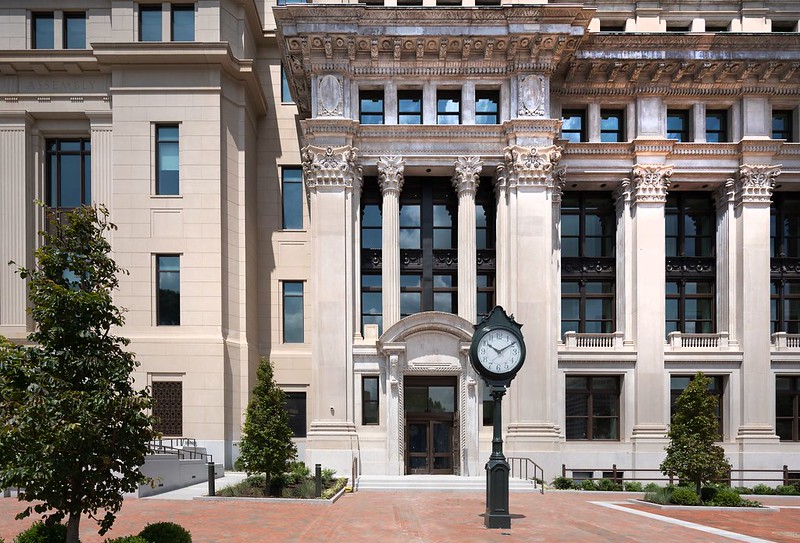
At the halfway point of his administration, Virginia Gov. Glenn Youngkin unveiled a budget proposal that calls for significant income tax cuts, increases in state sales and use tax — and a push to get rid of the car tax, which the Republican called “the single most hated tax” in Virginia.
“The car tax belongs in the trash can and not in your mailbox,” he said.
Speaking to the state’s joint money committees Wednesday morning, Youngkin reiterated his familiar themes that Virginia must take action to reverse ongoing population losses to other states and reduce residents’ tax burdens.
“Across the country today, there are winning states and there are losing states,” he said. “Virginia must compete even harder.”
But the governor’s speech took a less political tone than earlier addresses to the state’s legislative budget architects, offering fewer criticisms of prior administrations and acknowledging that Virginia government remains divided after Democrats narrowly won control of both chambers of the legislature this November. That outcome dampened Youngkin’s prospects for a presidential run and will force him to work across the aisle to achieve his key priorities.
Because Virginia operates on a two-year budget that is amended annually, the “Unleashing Opportunity” budget presented by Youngkin Wednesday represents the governor’s first crack at crafting a state spending plan from whole cloth. The last two-year budget, which was passed in 2022, was based on a plan from outgoing Democratic Gov. Ralph Northam.
With power divided between Democrats and Republicans in Richmond and historic state surpluses fueled by pandemic-era relief spending, the past few years have seen unusual levels of contention over the state budget. Amendments to the spending plan, ordinarily passed at the time the General Assembly adjourns in late February or early March, took until September this year to come to fruition as the parties bickered.
“I would ask us to deliver a budget on time when you adjourn sine die in March,” Youngkin told the money committees on Wednesday, referring to the final adjournment of the legislative session. “Virginians deserve it, and I know we can do it.”
This year, lawmakers will have less money at their disposal, with pandemic-era infusions of cash at an end and state economic officials projecting a mild recession beginning in the last quarter of fiscal year 2024.
The “overwhelming consensus” of state leaders, said Youngkin, was that in developing the budget, “we should build in caution.”
Democrats have already signaled concerns with the governor’s spending plan — and some surprise.
“I heard the governor say this was halftime. And he came back out as a Democrat, a lot of tax increases,” wisecracked incoming House Speaker Don Scott, D-Portsmouth, in an exchange with Virginia Secretary of Finance Stephen Cummings.
Senate Democrats on Wednesday afternoon issued a statement calling the governor’s budget “absolutely disgraceful” and “a slap in the face of our most vulnerable individuals.”
“We are smart enough and bold enough to know that his speech was the highlight reel and that he omitted the dirty details of his plan,” the caucus wrote. “Governor Youngkin believes that ensuring more tax cuts for wealthier individuals is most beneficial for low income individuals in our commonwealth.”
The proposal put forward by the governor Wednesday marks only the beginning of the state’s budget season. When the General Assembly convenes Jan. 10, both chambers will have a chance to modify Youngkin’s budget, removing parts they don’t like and accepting or strengthening those they do. The House and Senate will then need to reconcile their two versions of the plan — a process that historically has occurred behind closed doors through the legislature’s opaque conference committee system — and send it to the governor for his review.
“While we appreciate Governor Youngkin for sharing his budgetary vision today, it is imperative that we have a thorough examination of his proposal,” said Del. Luke Torian, D-Prince William, the incoming chair of the House Appropriations Committee. “This is the starting point to construct a budget that not only reflects our dedication, but also secures prosperity and fairness for every resident in the commonwealth.”
Here’s some of what Youngkin is proposing at the starting line. Read More
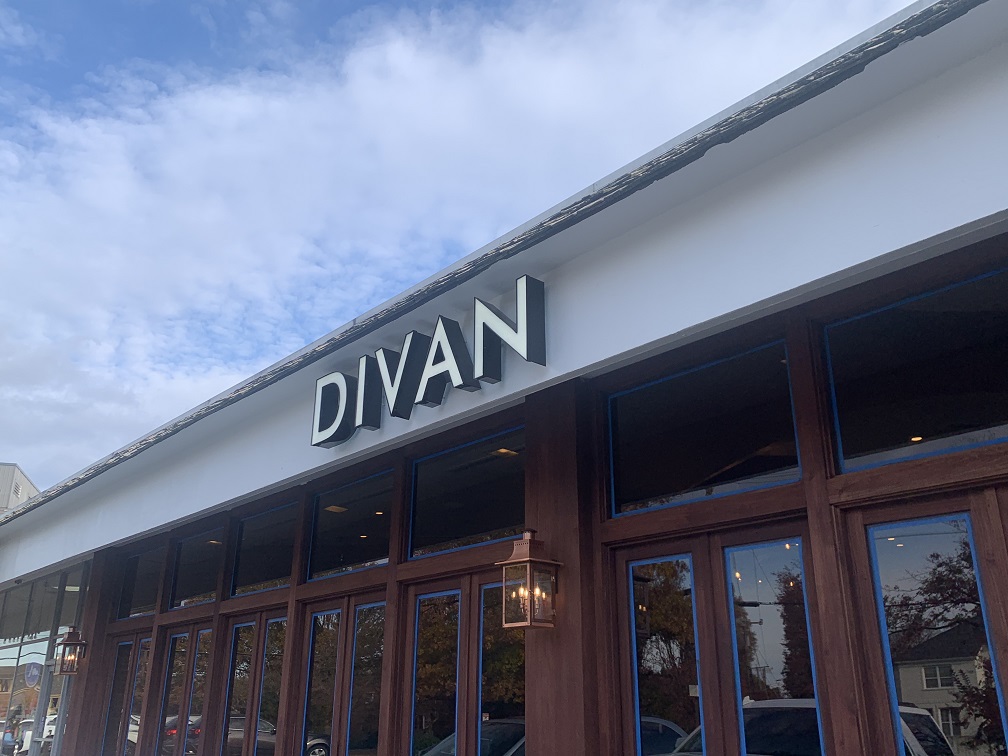
The man behind Divan in McLean has been sentenced to nearly five years in prison for failing to pay taxes and stealing COVID-19 relief funds — including money used to establish the Persian restaurant.
Gholam “Tony” Kowkabi, 63, of Vienna was sentenced by a federal judge on Monday (Dec. 18) to 57 months in prison after pleading guilty on Aug. 14, the U.S. Attorney’s Office of D.C. announced.
His wife Karen Kowkabi, 64, also pleaded guilty to tax evasion and has been sentenced to 24 months of probation.
The pair has also agreed to pay the $1.35 million that they owe the IRS, and Gholam Kowkabi must pay $738,657 to the Small Business Administration as restitution for the relief funds that he got to support his Georgetown restaurant, Ristorante Piccolo, during the COVID-19 pandemic but spent instead on personal expenses.
“As part of his guilty plea, Mr. Kowkabi acknowledged having spent money intended to help his business on a waterfront condo in Ocean City, Md., as well as personal investments, vacations for his family, and college tuition for his adult children,” the U.S. Attorney’s Office said.
After serving the prison term, Gholam Kowkabi will be on supervised release for three years.
According to prosecutors, the couple avoided paying federal income and employment taxes from 1998 to 2018 “by concealing assets and obscuring…large sums of money” through property purchases, false entries in their business records and the use of business bank accounts to hide personal purchases.
During that time frame, the Kowkabis owned and operated Ristorante Piccolo, which opened in 1986, as well as the restaurants Catch 15 and Tuscana West, which were also located in D.C. Tuscana West, an Italian eatery, closed after 20 years in 2014, while Catch 15 closed in 2018, not long after filing for bankruptcy protection.
According to the press release, Gholam Kowkabi received over $1.6 million in federal COVID-19 relief funds — including Paycheck Protection Program (PPP) loans, an Economic Injury Disaster Loan and Restaurant Revitalization Funds — between May 13, 2020 and July 27, 2021.
Instead of using all the money to cover Ristorante Piccolo’s expenses as intended, he spent more than $500,000 to buy a waterfront condo in Ocean City, over $250,000 to build homes in Great Falls, and over $78,500 to establish Divan, which opened at 1313 Old Chain Bridge Road in December 2021.
Funds were also used to on mortgage payments, vacations, personal legal expenses, home improvements and college tuition payments, according to prosecutors.
Gholam Kowkabi was previously sentenced to 18 months in prison for evading $2 million in D.C. sales taxes.
While Divan is still operating, Ristorante Piccolo has been closed since June after suffering damage from a two-alarm fire, including the collapse of its roof.
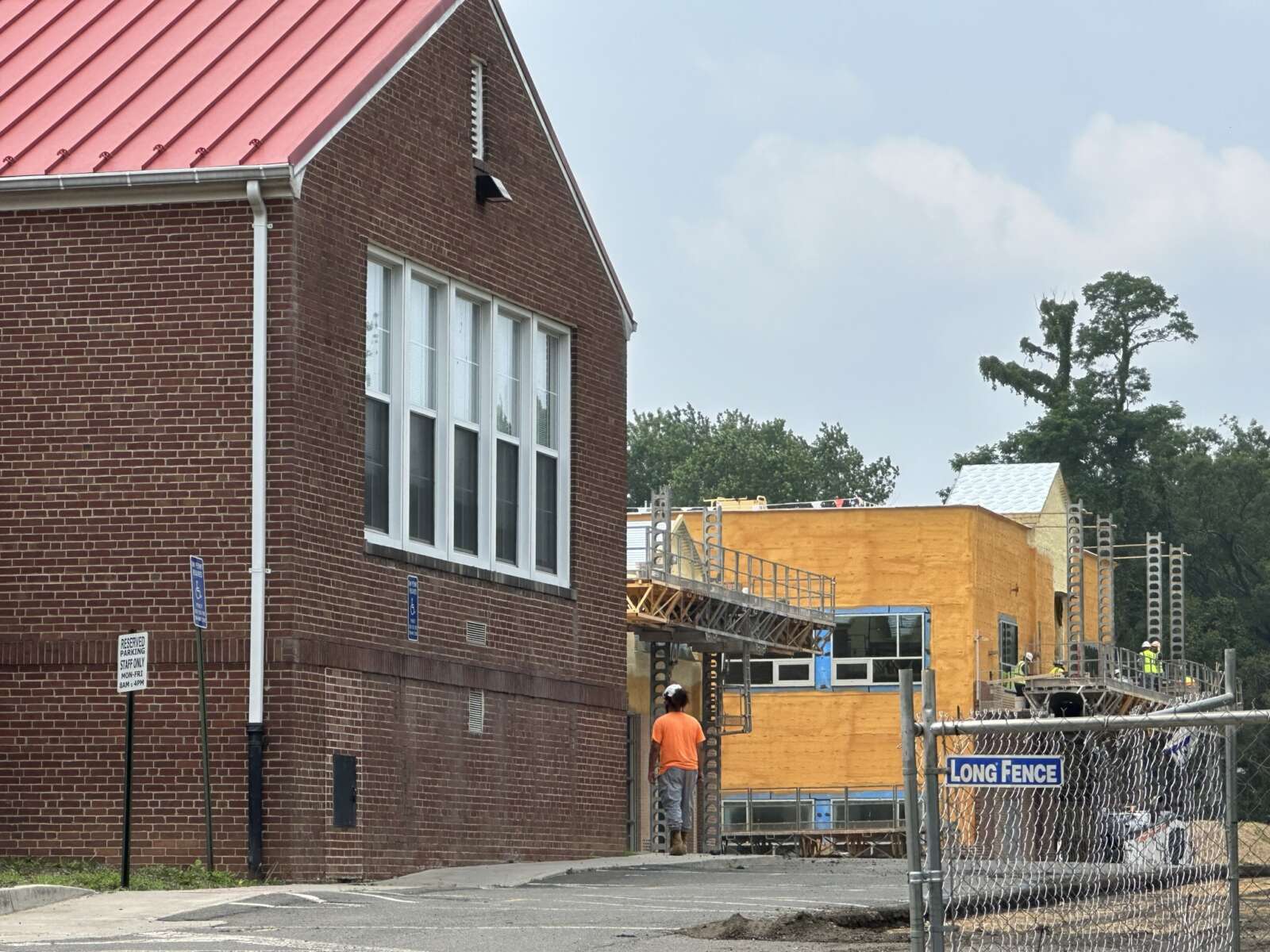
Democrats are again pushing for legislation that would allow local governments to hold referenda on increasing their sales and use tax to pay for school capital projects such as construction and renovations.
The party hopes the effort, which has been tried twice before but defeated by Republicans, will be successful now that Democrats are set to control both the House of Delegates and the Senate following the November elections.
“We think with the change in the dynamics in the House that this bill has a very good chance,” said Sen. Jeremy McPike, D-Prince William, adding that a similar version of the bill passed with bipartisan support last year in the Democratic-controlled Senate before dying in the House.
Under current law, only nine localities can impose a 1% sales tax to fund school construction and renovation projects. They are the counties of Charlotte, Gloucester, Halifax, Henry, Mecklenburg, Northampton, Patrick and Pittsylvania and the city of Danville.
Local governments have control over adjustments to their property tax rates — but aren’t allowed to change the sales tax rate without explicit permission from the General Assembly.
In 2021, Virginia invested nearly $1.3 billion into programs distributing grants and loans for school construction after a survey found over half of Virginia’s schools are more than 50 years old, with replacement costs for each in the millions.
“It’s really about empowering localities to make their own decisions about how they want to fund schools, and this is a new tool in the toolbox,” McPike said.
Lawmakers have already set a “precedent of permitting localities to impose a sales tax increase for school capital projects through the referendum process,” he said, “but what the bill would do is essentially allow all localities to make that choice and figure out if that’s the right fit for their community and their community needs.”
Former Republican Del. James Edmunds, R-Halifax, introduced a bill last session to add Prince Edward County to the list of localities allowed to impose a 1% sales tax for school capital projects. However, a House Finance subcommittee failed to hear the proposal.
In 2019, Edmunds successfully carried legislation to add Halifax County to the list of permitted localities.
Republicans have been reluctant to support changes to the law that could allow the raising of taxes, outgoing Sen. Tommy Norment, R-Williamsburg, told the Mercury last session.
If the legislation can make it out of both chambers, the bills will still require approval by Republican Gov. Glenn Youngkin, who could sign them into law, veto them or suggest changes.
This article was reported and written by the Virginia Mercury, and has been reprinted under a Creative Commons license.
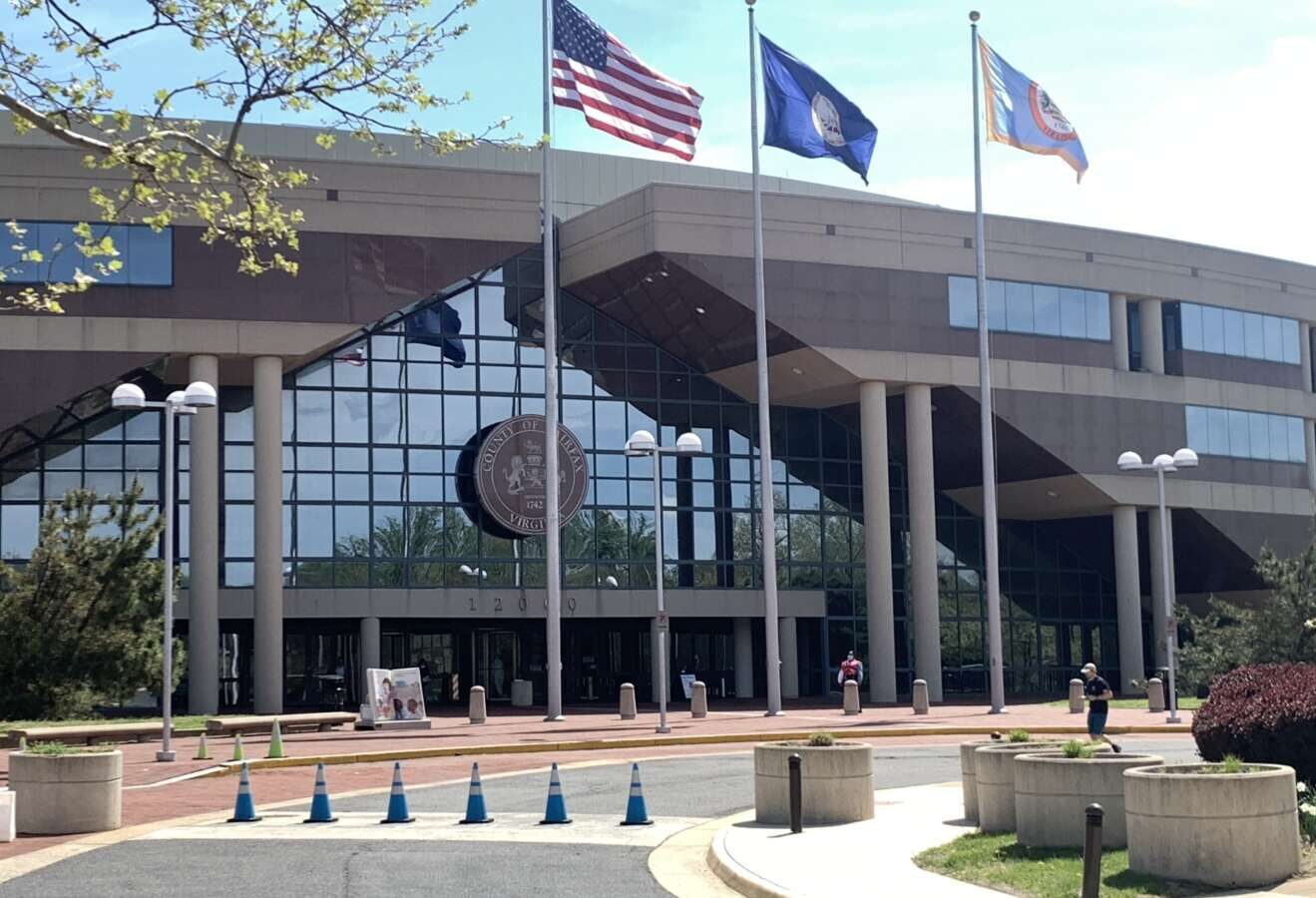
Anticipating slow growth in the real estate tax base and only a modest increase in general fund revenues, local officials are preparing for a slim budget in the next fiscal year.
At a joint meeting on Tuesday (Nov. 28), the Fairfax County Board of Supervisors and the school board got an early forecast of projected revenues, expenditures and general priorities for the county government and public school system’s fiscal year 2025 budgets.
Christina Jackson, the county’s chief financial officer, emphasized that the forecast is an early estimate of the budget.
“We recognize that this was going to be a challenging year,” said Jackson.
County officials anticipate a combined net budgetary shortfall of $284.5 million.
Based on last month’s projections, non-residential tax revenue is expected to grow by 1.9% from the current fiscal year 2024 rate of 3.6%. In fiscal year 2023, non-residential tax revenue stood at 7.3%.
That’s coupled with substantially lower growth in the real estate tax base for next year — a mere 1.7% compared to 6.6% in the current fiscal year. The residential real estate market has softened as a result of high mortgage rates, but values are still expected to increase by 2.1% due to low supply, county staff said.
Funding conversations continue in the background of a study that found Virginia’s school divisions receive 14% less funding from the state than the average for all 50 states.
Calling the state’s underfunding “a generational wrong,” McKay said the report by the Joint Legislative Audit and Review Commission (JLARC) is a critical opportunity to shift the statewide conversation about the state’s funding formulas.
“This study can either collect dust and be ignored, or this study can be acted on and Virginia can get ahead of West Virginia and Kentucky, which frankly should embarrass everyone who lives in Virginia,” McKay said.
Ricardy Anderson, who represents Mason District on the school board and chairs the board’s budget committee, highlighted the space constraints that Fairfax County Public Schools already faces.
“We cannot trailer our way out of this issue, because the schools are growing,” she said, noting that at one school, the entire fifth grade is housed in trailers.
She suggested that the county restart a conversation about adopting a meals tax in order to generate revenue. County voters rejected a referendum in 2016, but the General Assembly approved a bill in 2020 that gave counties the authority to tax food and beverages without a referendum. Read More

A 58-year-old tax preparer from Mount Vernon was sentenced to 18 months in prison last week for filing fake tax returns for his “unsuspecting” clients, according to the U.S. Department of Justice.
Lawrence Appiah-Osei pleaded guilty in June to operating the scheme from 2017 to 2020 from his Mount Vernon home, defrauding the U.S. government of more than $1.4 million, according to a release published Friday (Nov. 3) by the U.S. Attorney’s Office for the Eastern District of Virginia.
Appiah-Osei started his tax preparation business, New Look Enterprise, in 2016, and the following year “executed a scheme to fraudulently inflate the tax refunds of his clients,” the release said.
“Appiah-Osei falsely claimed that his clients operated businesses that lost thousands of dollars each year,” prosecutors said in the release. “These fraudulent losses drove down the clients’ taxable income and increased the clients’ tax refunds.”
The Internal Revenue Service-Criminal Investigation division estimated the tax loss to be nearly $1.5 million, according to court records.
Image via Google Maps

A Vienna couple who own multiple restaurants in the D.C. area, including Divan in McLean, pleaded guilty in federal court earlier this week to evading over $1 million in taxes and stealing COVID-19 relief funds.
As part of the plea agreement, Gholam Kowkabi, 63, and Karen Kowkabi, 64, will give the IRS the $1.35 million that they failed to pay in taxes related to their D.C. restaurants Ristorante Piccolo, Catch 15 and Tuscana West, the U.S. Attorney’s Office for D.C. announced on Monday (Aug. 14).
Gholam must also pay the Small Business Administration $738,657 in restitution for spending money from Covid loans intended to support Ristorante Piccolo on a “waterfront condo in Ocean City, Maryland, as well as personal investments, vacations for his family, and college tuition for his child,” according to the Department of Justice.
Those “personal investments” included Divan, a Persian and Mediterranean restaurant that opened at 1313 Old Chain Bridge Road in December 2021, per the press release.
A general manager for Divan said the restaurant had no comment on the case.
“This defendant robbed a program intended to help fellow restauranteurs and other small business owners who were struggling to stay afloat amid the devastating economic impacts of the COVID-19 pandemic,” U.S. Attorney Matthew Graves said in a statement. “He also created an elaborate scheme to hide assets and play a shell game with the IRS so he could avoid paying the more than one million dollars in taxes that he and his business owed. Our Office will continue to vigorously prosecute such frauds.”
Prosecutors say the Kowkabis admitted to “willfully” avoiding paying federal employment and income taxes and associated penalties from 1998 to 2018 by buying property through a separate entity and falsifying business records of the D.C. restaurants to hide personal purchases.
According to the DOJ, Gholam also obtained over $1.6 million in federal COVID-19 relief funds from May 13, 2020 to July 27, 2021 that businesses could use to cover payroll costs, rent and other expenses.
In these applications and loan agreements, Gholam Kowkabi fraudulently and falsely promised that the PPP, EIDL, and RRF proceeds would be used only for business-related and eligible purposes as specified in the applications. Instead, Gholam Kowkabi used a portion of the PPP funds, EIDL funds, and RRF funds for unauthorized purposes and for his own personal enrichment, including the purchase of a waterfront condo in Ocean City, Maryland for more than $500,000, two joint venture investments totaling more than $237,000 for the construction of homes in Great Falls, Virginia, and more than $78,500 to open Divan Restaurant in McLean, Virginia. Gholam Kowkabi spent more than $11,000 of COVID relief funds on his home mortgage, more than $14,000 on vacations, more than $62,000 on personal legal expenses, more than $20,000 on home improvement, and more than $5,500 on college tuition payments.
In addition to paying restitution to the SBA, Gholam has agreed to forfeit the Ocean City condo and the two joint ventures that were used to build the Great Falls homes and open Divan.
He pleaded guilty to wire fraud and tax evasion, which carry financial penalties as well as potential prison sentences totaling 25 years.
Karen Kowkabi pleaded guilty to five counts of willfully failing to pay taxes, a charge that could result in up to one year of jail time and fines.
“Tax evasion and misappropriation of COVID-19 relief funds undermine the integrity of our tax system and harm honest taxpayers,” Kareem Carter, acting special agent in charge of the FBI’s D.C. Field Office, said. “IRS Criminal Investigation remains steadfast in its commitment to upholding tax compliance and pursuing those who attempt to evade their tax responsibilities.”
Sentencing hearings have been scheduled for Dec. 1, 2023.
This isn’t the first time Gholam has faced prison on tax-related charges. In 2006, he was sentenced to 18 months in federal prison for taking at least $2 million in sales taxes from D.C., becoming the first person convicted under the District’s then-new law imposing jail time for sales taxes evasion, the Washington Times reported at the time.

